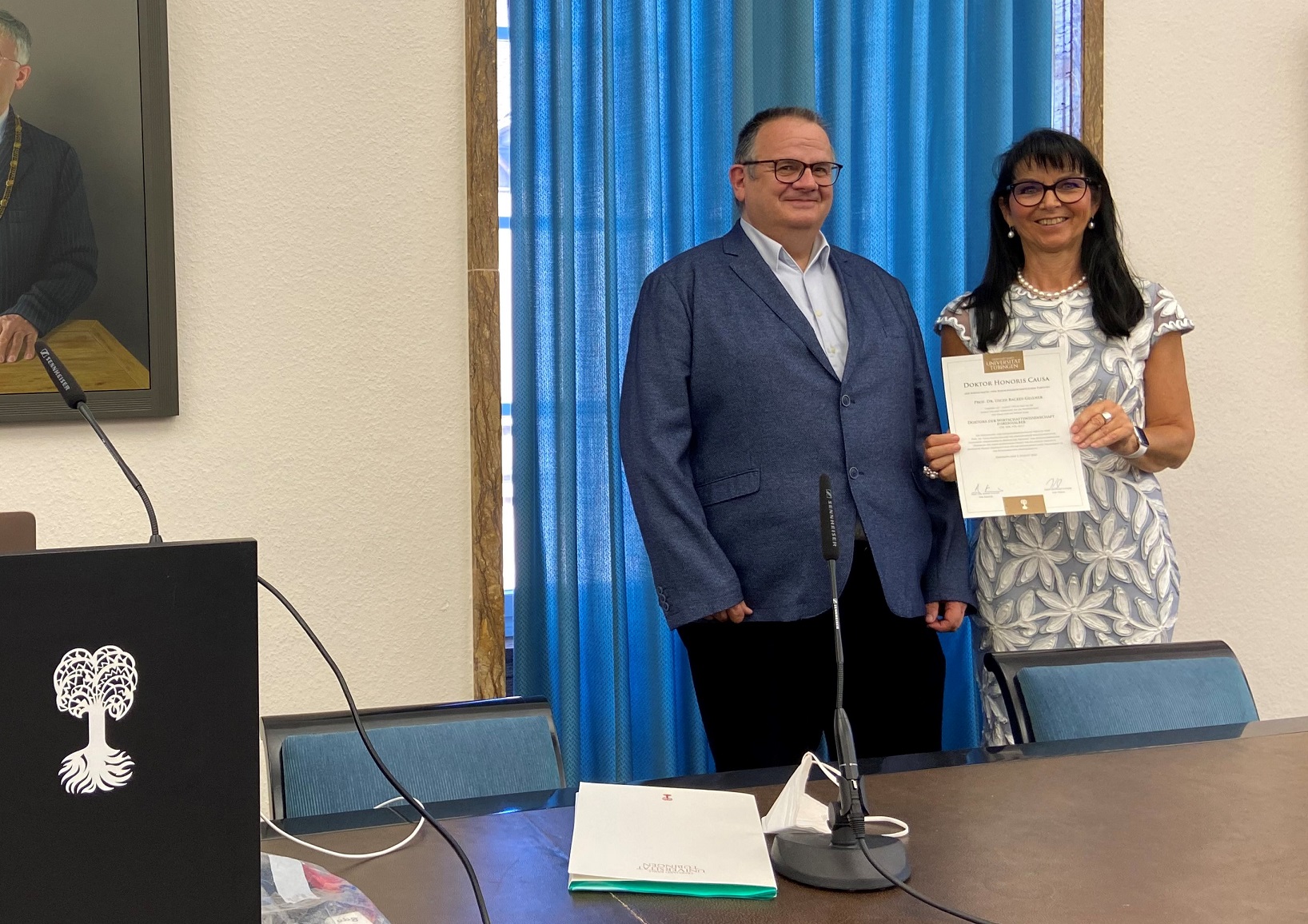23.06.2021
Honorary doctorate in economics for Prof. Dr. Uschi Backes-Gellner
In a ceremonial act, the Faculty of Economics and Social Sciences awarded Professor Dr. Uschi Backes-Gellner the honorary doctorate already conferred on August 3, 2020. She is the first woman in almost 100 years to be awarded an honorary doctorate in economics from University of Tübingen.
The economist Backes-Gellner is one of the world's leading human resources economists. Her comprehensive and highly regarded scientific work deals with issues that are highly relevant both practically and socially.
Professor Dr. Werner Neus, in his laudation, picked up on the motives of the university's application for excellence "Research, Relevance and Responsibility" to explain the merits of the honorary doctor. The scientific oeuvre, he said, includes higher education economics, corporate education and international comparative issues. Thus, "Uschi Backes Gellner stands for all aspects of personnel economics," said the laudator. Referring to the relevance of her research, Neus notes, "For example, she is currently among the top 5 percent of authors* in the RePEc ranking and among the top 10 percent of SSRN authors* in terms of downloads, both worldwide." The responsibility, she says, is to make the knowledge gained with public funding useful to society. Backes-Gellner also contributes her expertise outside of academia in relevant roles at important competence centers and institutes.
Relevance of Backes-Gellner's research
The focus of her research is the analysis of vocational education and training and human capital - in particular the role of higher vocational education and training for the innovative capacity of companies as well as for national innovation systems. This was the topic of the keynote lecture given by the Chair of Business and Personnel Economics at the University of Zurich:
"On the Influence of (Vocational) Education on Innovation - Personnel Economic Analyses, Empirical Findings and Policy Implications." She used the examples of Germany and Switzerland to illustrate the connection between dual vocational training and innovation. Backes-Gellner showed that companies with apprenticeship training are more innovative than those without. Particularly in regions with universities of applied sciences, she said, there is an increased number of patents and the corresponding "curricula updates push new competencies on the labor market." Based on her research, the professor takes a critical view of the academization of vocational training - especially in the social and health care sectors. It is important, she says, to develop awareness of lifelong learning, the professional mobility of skilled workers and, in addition to digital literacy, especially social competence and self-competence.
Vita Professor Dr. Uschi Backes-Gellner

